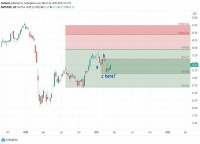|
Commodity Investing Outlook Long-only investments in commodity futures could get hit by a one-two punch this year. “With the G10 in recession and many emerging economies slowing sharply, further demand destruction is likely for most commodities in 2009 and may continue to outpace production cuts,” says a report from Nouriel Roubini's RGE. Admittedly, Professor Roubini is on the gloomy end of the forecast spectrum. But price declines are not the only risk. Those betting on rising oil prices face a contango futures market—that is, they're losing money from selling expiring contracts and buying longer-dated contracts. The roll yield, sometimes a source of positive return, is negative. “The contango (albeit narrowing) in the oil futures curve suggests further stockpiling of oil in anticipation of higher prices in the future,” is how RGE explains pattern of distant-dated contracts being more expensive than near-dated contracts. Demand for oil continues to fall in the OECD and even in emerging economies like China – the big source of added demand in recent years – oil demand is likely to shrink in 2009 because of economic weakness, the report points out. That picture certainly does not favor across-the-board passive investing. On the other hand, there may be upward pressure on the prices of some agricultural commodities due to continuing supply shortage. RGE points to sugar and cocoa: “Despite a 27% rise in 2008, sugar prices will rise further in 2009 due to a widening global sugar deficit, notwithstanding slower ethanol production growth due to lower fossil fuel prices. Similarly, a cocoa supply shortage due to poor weather may offset a retrenchment in chocolate demand due to consumers' higher debt servicing costs, falling wealth and lousy employment outlook.” But overall, RGE's outlook is negative: “Across the commodities group, inventory buildup and falling demand creates conditions ripe for extending the current bear market, despite the fact that most commodities seem to have fallen below production costs for new supplies.” We asked people in managed futures what they see happening. The conditions that are a disadvantage for commodity index investments can benefit long/short managers. Davide Accomazzo, managing director at Cervino Capital Management LLC, told us: “Inflation or deflation… that is the looming question! Certainly these are complex times and any kind of economic analysis, more than usual, is subject to revisions forced by significant policy or systemic changes. “Inflation or deflation… that is the looming question! Certainly these are complex times and any kind of economic analysis, more than usual, is subject to revisions forced by significant policy or systemic changes. It would seem like the cumulative effect of all the government programs and the extremely aggressive monetary policy implemented so far should seriously weaken the dollar. The US dollar has a high inverse correlation to commodities and therefore we should eventually see commodities rise. In the shorter term, however, we are still dealing with a large gap between output and demand—a deflationary dynamic—which has been pressuring commodity prices to the downside. In the final analysis, this will be a traders' market for quite sometime. Not a bad place to be for flexible CTA programs.” Mack Frankfurter, chief investment strategist at Managed Account Research Inc., says investors should ask where the return comes from in commodities: “Obviously commodities are going to rise and fall in line with dollar weakness and strength. What I think is more interesting is the behavioral dynamics set in play because of the speculative boom-bust in commodity prices last year. Any rise in price is going to cause a more sensitive reaction by long hedgers, the consumers of commodities, to hedge their forward needs. At the same time, producers of commodities or short hedgers are going to be more inclined to lock in rising prices to ensure positive operating margins. This is going to result in range-bound trading driven by fundamental factors, which in fact is a sign of healthy commodity markets, unlike in 2008. CTAs who know how to actually trade these markets are going to outperform passive commodity exposure. Truth is, I believe managed futures did well last year exactly because securitized commodity products were the dumb money from which CTAs ultimately took excess premia. Futures is a zero-sum game and the source of return has to come from somewhere when speculating in commodities. That's the question investors should be asking.” Long/short commodity managers are finding opportunities. Lars Steffensen, managing partner at Ebullio Capital Management, describes the recent trades that made money for him: “Tin, nickel, crude and cocoa outright along with the lead/zinc relative value spread and tin calendar spreads were the star performers. Copper was the only noticeable laggard due to us turning into non-believers of the rally too soon. We believe that the grotesquely bad industrial production and GDP figures from the rest of the world are right and that the figures from China are wrong; call us cynics, but we just don't believe that China can keep reporting electricity output down 25% or 30% with the rest of the economy going ahead unchanged or even allegedly growing. We will be short on the way down and remain vigilant for real signs of recovery or the printing of money on a massive scale in order to get long for the long term. What is for certain is that the markets will stay extremely volatile and changeable and therefore, in our mind, very tradable.” Ebullio returned 4.5% April and 10.5% year to date. The firm invests in all commodity markets via futures, options and some physical trading, using a discretionary approach along with technical and fundamental signals. |
|
This article was published in Opalesque Futures Intelligence.
|





 RSS
RSS











